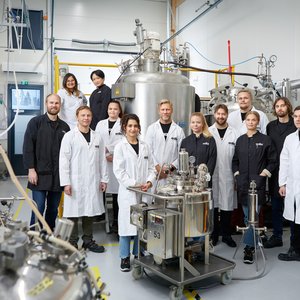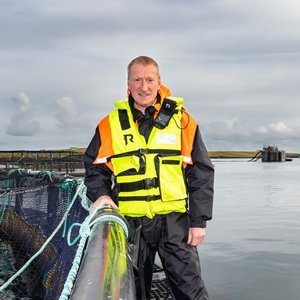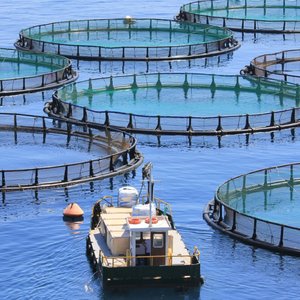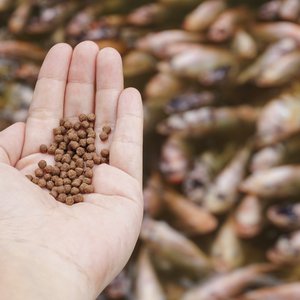GMOs: Member States to be given full responsibility on cultivation in their territories
This week the European Commission proposed to give Member States the freedom to allow, restrict or ban the cultivation of Genetically Modified Organisms (GMOs) on part or all of their territory. While keeping unchanged the EU's science-based GM authorization system, the adopted package consists of a Communication, a new Recommendation on co-existence of GM crops with conventional and/or organic crops and a draft Regulation proposing a change to the GMO legislation. The new Recommendation on co-existence allows more flexibility to Member States taking into account their local, regional and national conditions when adopting co-existence measures. The proposed regulation amends Directive 2001/18/EC to allow Member States to restrict or prohibit the cultivation of GMOs in their territory.
Currently there is only one GMO cultivated in the EU:GM maize –MON 810. This product's genetic modification aims to protect the crop against the European corn borer. It was authorised in 1998. GMOs authorized for feed and food use includes also one sugar beet, three soybean, three oilseed-rape, six cotton and 17 maize products.
Six Member States (Austria, Hungary, France, Greece, Germany and Luxembourg) have prohibited the cultivation of the GM maize MON810 on their territories. Poland has legislation in place forbidding the marketing of all GM seeds.
Member States could now reconsider their safeguard measures on GMO cultivation, when there is no scientific justification, and rather use the more flexible Recommendation on co-existence adopted this week to avoid unintended GMO presence in other crops.
Member States will be able to restrict or prohibit GMO cultivation without resorting to the safeguard clause when no new scientific risk is identified.
Health and Consumer Policy Commissioner, John Dalli said: "Last March, the Commission promised to present a comprehensive proposal on our future policy vis-à-vis GM cultivation by the end of the summer. Today we deliver on that promise. The concrete measures adopted today will allow Member States the freedom to decide on GMO cultivation. Experience with GMOs so far shows that Member States need more flexibility to organize the co-existence of GM and other types of crops such as conventional and organic crops."
The Commissioner added: "Granting genuine freedom on grounds other than those based on a scientific assessment of health and environmental risks also necessitates a change to the current legislation. I stress that, the EU-wide authorization system, based on solid science, remains fully in place." To conclude: "This means that a very thorough safety assessment and a reinforced monitoring system are priorities in GMO cultivation and are therefore being pursued vigorously. The Commission is committed to follow up actions on them before the end of the year.”
The Commission said the package heralds a more flexible approach towards cultivation:
The strict authorization system already in place will remain the same.
With the new freedom given to Member States to decide on cultivation, the Commission aims to send a strong signal is sent to citizens that Europe takes into account their concerns, which may vary from one country to another, regarding GMOs. The new approach aims to achieve a balance between maintaining an EU authorization system and the freedom for Member States to decide on GMO cultivation in their territory. As a first step under existing legislation new Recommendation on guidelines for the development of national co-existence measures replaced the previous recommendation of 2003.
The previous Recommendation made a direct link between the establishment of co-existence measures and the respect of the 0.9% threshold for labelling as GM food, feed or products intended for direct processing. Member States were advised to limit co-existence measures (e.g. length of distances between GM and non-GM fields) to comply with 0.9% GM presence in other crops.
The non-binding guidelines included in the new Recommendation on co-existence better reflect the possibility provided in the existing legislation (Article 26a of Directive 2001/18/EC) for Member States to adopt measures to avoid the unintended presence of GMOs in conventional and organic crops. This also allows for measures aiming to limit GMO content in conventional food and feed to levels below the labelling threshold of 0.9%. The Recommendation also clarifies that Member States can establish "GMO-free" area and this new Recommendation provides better guidance to Member States to develop co-existence approaches. The European Co-existence Bureau will continue to develop together with Member States best practices for co-existence as well as technical guidelines on related issues.
The proposal for revising Directive 2001/18/EC aims to secure legal certainty for Member States when they decide on GMO cultivation on grounds other than those based on a scientific assessment of health and environmental risks. To this end, the Commission proposes to include a new article (26b), which would be applicable to all GMOs that will be authorised for cultivation in the EU, either under Directive 2001/18/EC or under regulation (EC) N°1829/2003. Member States will be able to restrict or prohibit GMO cultivation in part or all of their territory without recourse to the safeguard clause. Their decisions will not need to be authorised by the Commission, but Member States will have to inform other Member States and the Commission one month before the adoption of their measures. The Member States will also have to respect the general principles of the Treaties and the Single Market, and be consistent with the international obligations of the EU.
The legislative proposal will be adopted through co-decision with the European Parliament and the Council.










